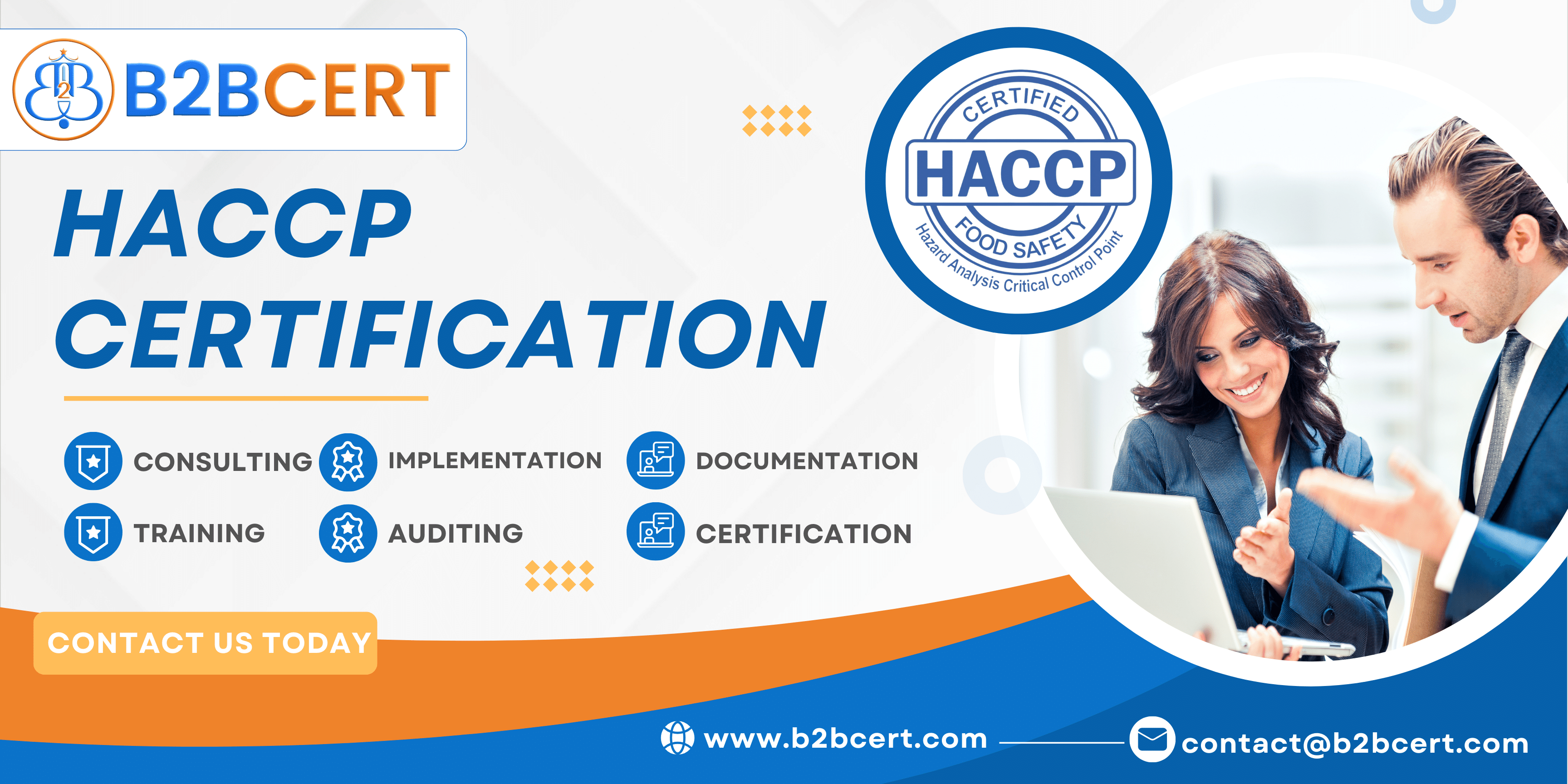HACCP Certification for Restaurants, Manufacturers, and Food Suppliers

HACCP (Hazard Analysis and Critical Control Points) is an internationally recognized food safety management system that helps businesses identify, assess, and control food safety hazards. HACCP Certification in Oman is essential for restaurants, food manufacturers, and suppliers to ensure compliance with food safety regulations, maintain product quality, and build consumer trust.
What is HACCP Certification?
HACCP Consultants in Oman is a systematic approach to food safety that focuses on preventing contamination rather than reacting to issues after they occur. It involves a structured plan to identify biological, chemical, and physical hazards in food production and establish control measures to mitigate risks. Regulatory bodies and third-party auditors assess compliance before granting certification.
Importance of HACCP Certification
HACCP Certification in Chennai is critical for food-related businesses as it:
-
Ensures compliance with international food safety standards.
-
Reduces the risk of foodborne illnesses and contamination.
-
Enhances consumer confidence and brand reputation.
-
Helps in regulatory approval for export and international trade.
-
Reduces waste and operational costs by improving food safety management.
HACCP Certification for Different Sectors
1. Restaurants
Restaurants handle food preparation and service, making HACCP crucial to maintaining hygiene and preventing contamination. Key benefits include:
-
Ensuring proper food handling, storage, and cooking temperatures.
-
Preventing cross-contamination between raw and cooked foods.
-
Improving staff training on food safety protocols.
-
Complying with local health regulations and inspections.
HACCP Consultants in Chennai in restaurants reduces the risk of foodborne diseases and enhances customer confidence in food safety standards.
2. Food Manufacturers
Food manufacturers deal with mass production and packaging, where safety risks are higher. HACCP certification helps in:
-
Identifying critical control points (CCPs) in processing.
-
Ensuring proper sanitation, ingredient sourcing, and storage.
-
Reducing risks of chemical, physical, and microbial contamination.
-
Complying with global food safety standards such as ISO 22000 and FDA regulations.
For manufacturers, HACCP Certification in USA ensures product consistency, safety, and compliance with international trade requirements.
3. Food Suppliers and Distributors
Food suppliers and distributors play a key role in the food supply chain. HACCP Consultants in USA helps them:
-
Maintain the quality and safety of food products during transportation and storage.
-
Prevent cross-contamination and temperature abuse.
-
Improve traceability of food sources and supply chain integrity.
-
Gain acceptance in international markets that require HACCP compliance.
Steps to Obtain HACCP Certification
-
Conduct a Hazard Analysis – Identify potential food safety hazards.
-
Determine Critical Control Points (CCPs) – Identify points where hazards can be controlled or eliminated.
-
Establish Critical Limits – Define acceptable limits for each control point.
-
Implement Monitoring Procedures – Regularly check CCPs to ensure compliance.
-
Take Corrective Actions – Address any deviations from safety standards.
-
Maintain Records and Documentation – Keep logs of procedures, tests, and corrective actions.
-
Undergo Audit and Certification – Apply for third-party HACCP certification from accredited agencies.
Benefits of HACCP Certification
-
Ensures food safety and hygiene across the supply chain.
-
Enhances business credibility and consumer trust.
-
Reduces legal risks and non-compliance penalties.
-
Facilitates access to international markets and regulatory approvals.
Conclusion
HACCP certification is essential for restaurants, manufacturers, and food suppliers to uphold food safety, regulatory compliance, and customer satisfaction. Investing in HACCP not only reduces risks but also strengthens brand reputation and marketability. Businesses that prioritize HACCP certification ensure safe, high-quality food products for consumers worldwide.
- Questions and Answers
- Opinion
- Motivational and Inspiring Story
- Technology
- Live and Let live
- Focus
- Geopolitics
- Military-Arms/Equipment
- Sicherheit
- Economy
- Beasts of Nations
- Machine Tools-The “Mother Industry”
- Art
- Causes
- Crafts
- Dance
- Drinks
- Film/Movie
- Fitness
- Food
- Spiele
- Gardening
- Health
- Startseite
- Literature
- Music
- Networking
- Andere
- Party
- Religion
- Shopping
- Sports
- Theater
- Health and Wellness
- News
- Culture

